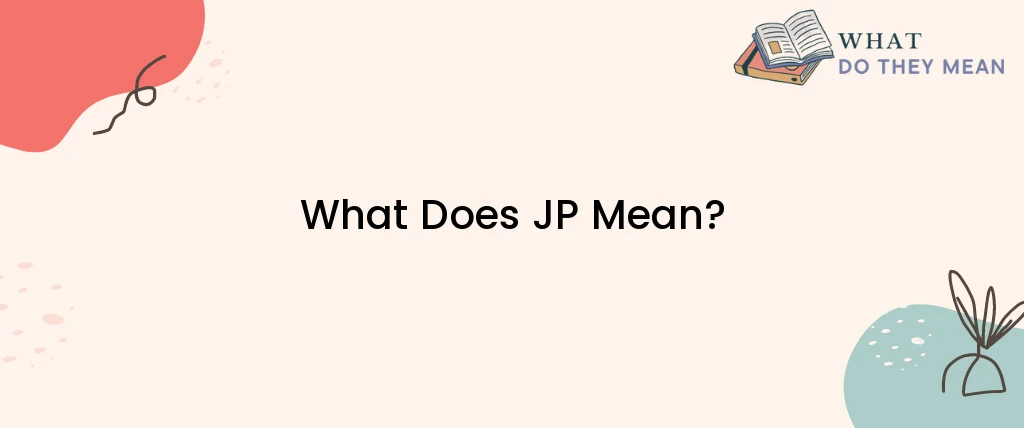The term JP is commonly used to refer to a Justice of the Peace. In this context, JP is a title given to a judicial officer who is responsible for handling minor legal matters. The role of a Justice of the Peace is often misunderstood, and many people may not be aware of the duties and responsibilities of this position. In this article, we will explore what JP means, the history of the role, the duties and responsibilities of a JP, and how to become a JP.
History of Justice of the Peace
The position of a Justice of the Peace can be traced back to medieval England. At that time, the King appointed Justices of the Peace to maintain order and administer justice in local communities. The position was created to address the lack of trained judges and legal professionals in rural areas. In the early days, the Justices of the Peace were responsible for enforcing laws related to public safety, crime, and civil disputes. Over time, their role expanded to include more responsibilities, such as the registration of births, marriages, and deaths.
Duties and Responsibilities of a Justice of the Peace
In modern times, a Justice of the Peace is responsible for performing a wide range of duties, which can vary from country to country. In general, a Justice of the Peace is authorized to hear and determine cases in a summary manner. This means that they can hear cases that do not require a full trial and can be resolved quickly. Examples of cases that a Justice of the Peace may hear include:
- Traffic offenses
- Minor criminal offenses
- Noise complaints
- Landlord-tenant disputes
- Small claims cases
- Issuing of search warrants
- Performing marriage ceremonies
- Certification of documents
In addition to hearing cases, a Justice of the Peace may also be responsible for other duties, such as:
- Maintaining court records
- Administering oaths and affirmations
- Issuing subpoenas
- Conducting mediations
- Assisting with voter registration
How to Become a Justice of the Peace
The requirements for becoming a Justice of the Peace vary depending on the jurisdiction. In most cases, a Justice of the Peace is appointed by the Governor or other authorized official. The process for becoming a JP typically involves submitting an application, undergoing a background check, and completing a training program. In some jurisdictions, a Justice of the Peace may be required to be a lawyer or have a legal background, while in others, there are no formal educational requirements.
Misconceptions About Justice of the Peace
Despite their important role in the legal system, Justices of the Peace are often misunderstood or underappreciated. Some people may believe that a Justice of the Peace is a lower-level judge or that they only hear minor cases. However, this is not entirely true. Justice of the Peace is an important part of the legal system and plays a critical role in ensuring that justice is administered fairly and efficiently.
Another common misconception about Justices of the Peace is that they are not qualified to hear cases or make legal decisions. However, this is also not true. Justices of the Peace undergo training and are authorized by the state or country to perform their duties. They are required to follow the law and make decisions based on the evidence presented to them.
You may also like: What Does Casita Mean?
Conclusion
In conclusion, JP is a term commonly used to refer to Justice of the Peace. This position has a long history, dating back to medieval England, and is still an important part of the legal system today. Justices of the Peace have a variety of duties and responsibilities, from hearing cases to performing marriages and maintaining court records. The requirements for becoming a JP vary depending on the jurisdiction but generally involve submitting an application, undergoing a background check, and completing a training program.
It is important to dispel the misconceptions about the role of a Justice of the Peace. They are not lower-level judges, and their decisions are not less important. Justices of the Peace play a critical role in maintaining order and administering justice in local communities.
In conclusion, JP stands for “Justice of the Peace,” a title given to a judicial officer responsible for handling minor legal matters. The role of a Justice of the Peace has a long history, dating back to medieval England. Today, the Justices of the Peace play an important role in ensuring that justice is administered fairly and efficiently in local communities.

As a researcher, I am curious and driven by the pursuit of knowledge. I approach my work with a critical eye, carefully evaluating sources and methods to ensure that my findings are accurate and reliable. Whether delving into scientific studies, historical records, or cutting-edge technologies, I am always seeking to expand my understanding and make new discoveries. I am dedicated to uncovering new insights and finding solutions to complex problems, and am driven by a passion for uncovering the truth.



